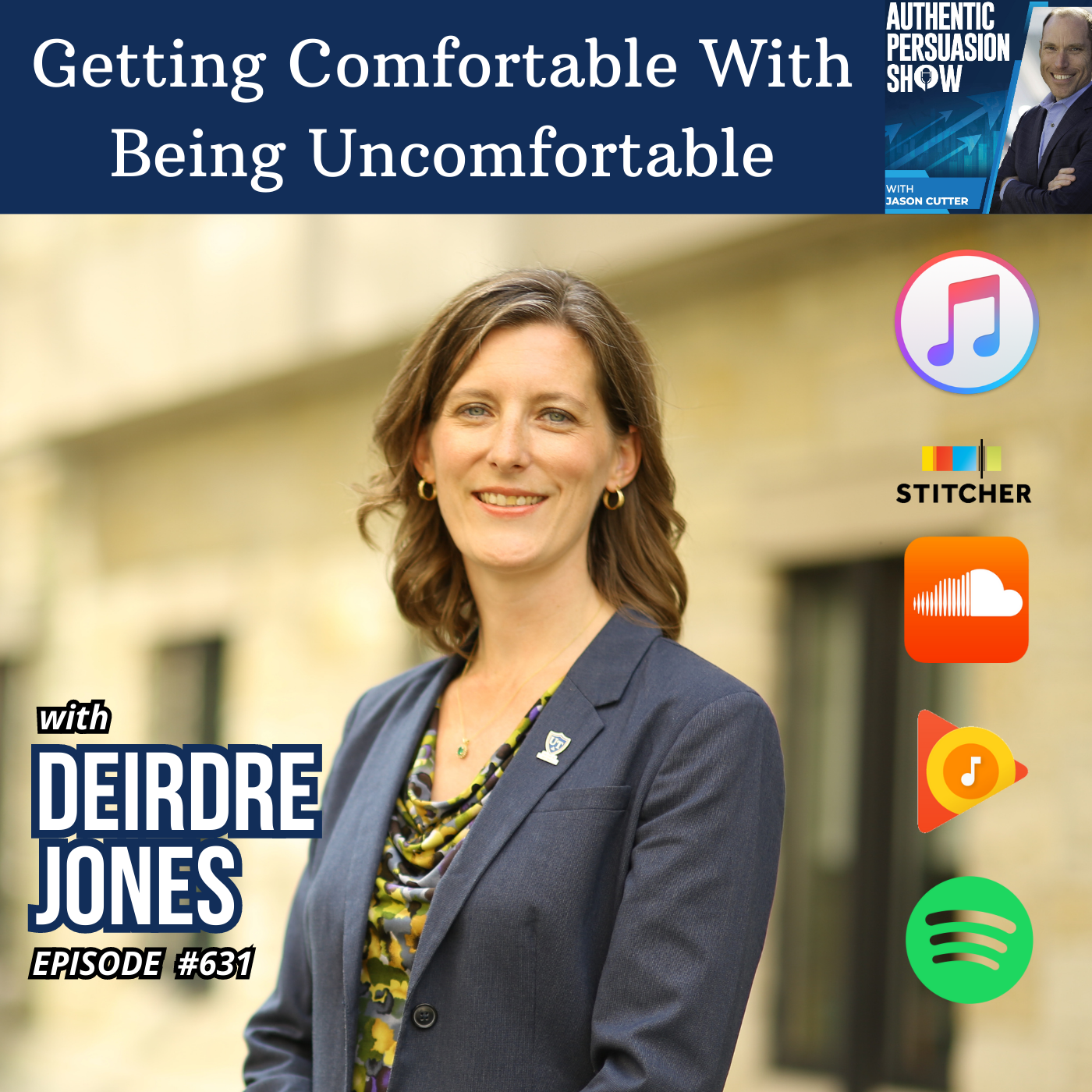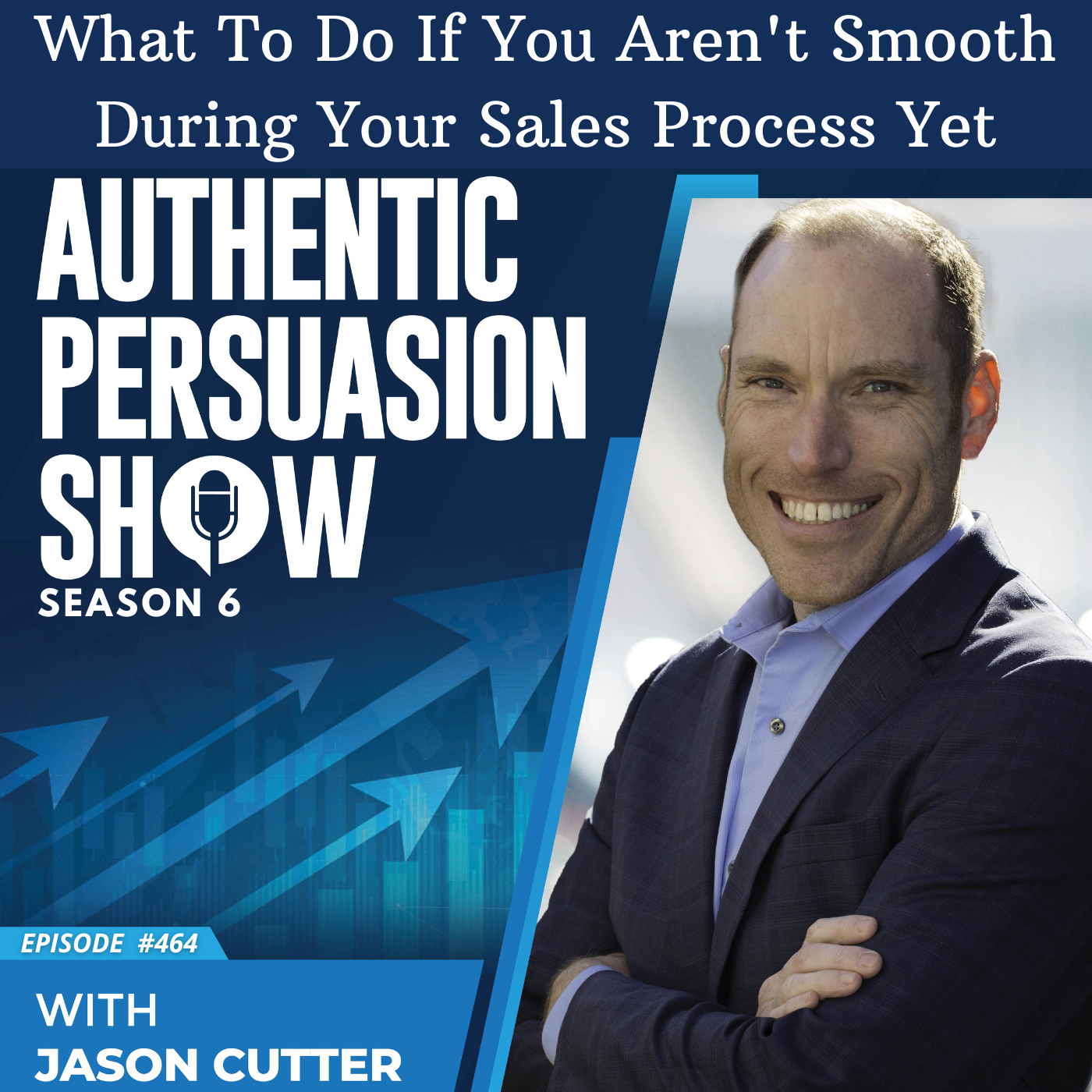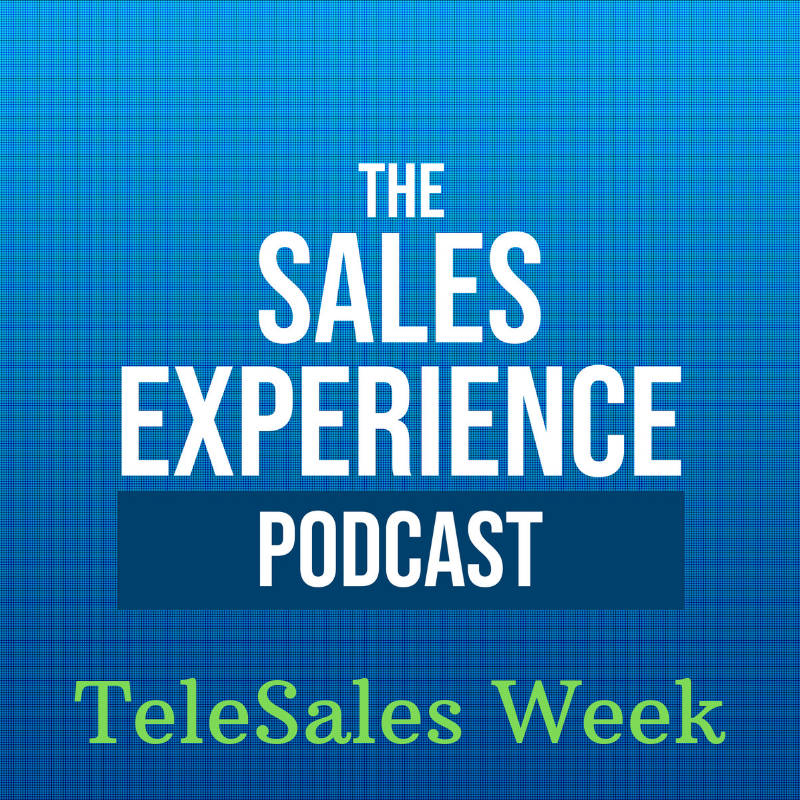Episode Transcript
Welcome to the authentic persuasion show on this episode. I want to replay part of a previous show. Maybe you heard the original full-length episode, and this could be a great refresher and reminder, or maybe this is your first time hearing this content. And the timing could be just right to help you leverage authentic persuasion today in your role, no matter what here's to your success.
This is the authentic persuasion show. When we talk about sales, that's life, and you can apply this to that. When we talk about sales. A lot of salespeople end up in sales because they're good at talking to people. They like talking, not always, right? There's people who are analytical, more introverted. They struggle with that part of it. They actually do better in sales because they don't make it about themselves.
They're asking lots of questions because they don't want to talk. They don't want to be the center of attention or the center of the universe or the hero of the story. And that's fundamentally one of the reasons why I think those kinds of salespeople do better because they're not making it about them.
They're making it about anything, but them, right? They don't want any of the spotlight on themselves. They put it on everybody else. The more classic sales. person who's talking a lot, especially about themselves, will turn off that prospective customer from thinking that they care about them. And the reason why it's because they're talking all the time.
One of the best solutions to this It's two parts. The first one, this is the, this is the simple advice that's always easy to remember is that we have two ears and one mouth, which means we should be listening twice as much as we should be talking. Most people have it backward. Or just a ratio that's completely bad.
They have one mouth and no ears and they're literally not listening to anything. And we've all experienced those people as well, where you say something and their response does not match anything that you just said, like they literally weren't listening and they had you tuned out and they don't care.
Again, this is for sales. This podcast in this show and this live stream is for people who are in sales and everything in life is sales and persuasion. And so it applies. We all have had those conversations. So keep in mind two years. One mouth when you're in a sales role, especially one of the biggest things you can do if you want to be successful and you, even if you don't have your scripting down, if you don't have transitions down, if you're not even sure what the best questions are to ask, you're not sure how to move people towards the close or talk about money or ask for their money or, their credit card or anything like that.
One thing that will literally set you apart and make your sales process so much easier is to remember two ears, one mouth, which equals a talking ratio where when you have this dialed in, you should be doing maybe 30, 35 percent of the talking in a sales conversation. And the other person should be doing 65, 70 percent of the talking.
In a sales conversation. Now you might be thinking, right? I have to talk about my company. I have to talk about myself. I have to talk about the product. I have to do this. Fine. Maybe that ratio is different. Maybe that ratio, maybe 50 50, but it's not, you're not going to be able to do where you're talking less because obviously in that mode, you're giving that demo. But overall your conversation should always be where you are doing a third of the talking, someone else is doing two thirds, two ears.
One mouth, two-thirds listening, one-third talking in your conversation. Now, why does that matter and why does that help your selling effectiveness so much? Like I said, if you don't have your transitions, your scripting, a lot of other things in place. You can offset that by listening twice as much as you talk, because it will make the other person feel like you care when you're building rapport, especially when we get into the next step.
It's even more important when you're doing that the rapport isn't talking about you and your weekend and what you did and what the adventure you just had, and your sports team and your this and your that. It's about the other person. It's about you asking them questions and getting them to talk.
If you ask them questions, and then they get to talking, and then you ask them another question in the rapport phase we're talking about the nice easy the relationship building, the warming up of things. If you do that. In that process, listening twice as much as you're talking, people will feel like you care again.
Think about personal relationships. Think about personal experiences that you've had with somebody could be random encounter. On a plane could be somebody that you've known for years or your whole life when they're asking you questions and they want to get to know you or they're building rapport or whatever it is, and they're asking questions and you get to do the talking, it will feel weird because you feel like you're making it all about you, but when they actually care and they're listening, then it will make you feel good. It will literally make you feel like they care about you. And that is your goal. A lot of salespeople in rapport, they feel like their job is to talk a lot, to build up lots of rapport, make it about them, find some connection. Oh, you like fishing. Let me tell you about these fishing trips that I just did.
Fight that instinct, fight that desire to make it all about you in this rapport phase and make it about them. Yes, you can add in some things. I have a shared experience. What do you do about this? Do your best to over time, figure out a way to change your brain and your mindset to asking them questions and making it about them because that is the key.
![[710] Two Ears, One Mouth - Secrets of Persuasive Selling](https://episodes.castos.com/salesexperiencepodcast/images/1630327/c1a-4d8w-p80g7j2mb34p-ev9lfc.png)


